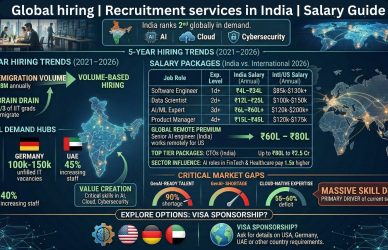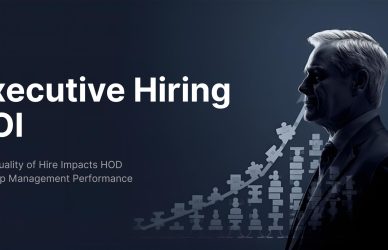Introduction: The Debate on HR Services
Human Resources (HR) services play a crucial role in the backbone of any organization, bridging the gap between management and employees and ensuring smooth operations. From recruitment and onboarding to training, payroll, and compliance, HR services are designed to handle every employee-related process within a company, alleviating operational burdens and allowing leaders to focus on growth and strategy.
The Supportive Side of HR Services
Proponents of HR services argue that they streamline essential tasks, fostering a structured work environment. By implementing policies, addressing grievances, and maintaining workplace harmony, HR services offer a structured, compliant workplace where employees feel supported. These services also enhance employee satisfaction and productivity through clear communication, training, and effective conflict resolution.
Controversies Surrounding HR Functions
However, not everyone views HR services favorably. Some employees and critics argue that HR services sometimes prioritize corporate interests over individual employee welfare, potentially overlooking genuine concerns. Questions arise around privacy, transparency, and fairness, with critics pointing to instances where HR departments fail to adequately support employees. For some, the rigid policies and formal procedures associated with HR departments can be perceived as restrictive or even counterproductive.
This dichotomy fuels the ongoing debate: Are HR services an asset to both companies and employees, or do they inadvertently create additional obstacles?

Understanding HR Services
HR services form the backbone of any organization’s operations, ensuring both compliance and employee satisfaction. They cover a range of functions essential to maintaining a harmonious and productive workplace. Here’s a closer look at the core elements and various models of HR services that companies adopt to meet their specific needs.
Defining HR Services
Recruitment
The recruitment function focuses on identifying, attracting, and hiring talent that aligns with a company’s culture and goals. This includes crafting job descriptions, sourcing candidates, conducting interviews, and managing the selection process. Effective recruitment helps ensure that organizations build a team with the skills and dedication necessary for growth.
Payroll Management
Payroll is one of the most crucial HR functions, as it handles the timely and accurate payment of employees, including calculating salaries, withholding taxes, and managing deductions. It ensures compliance with financial regulations, which is essential for legal adherence and employee trust.
Employee Relations
Maintaining healthy employee relations is central to any HR department. This involves addressing workplace conflicts, fostering open communication, and supporting a positive workplace culture. By managing grievances and mediating issues, HR services work to maintain a respectful and collaborative environment.
Training and Development
Training and development focus on enhancing employees’ skills and knowledge, preparing them for current and future roles. This involves organizing onboarding sessions for new hires, upskilling programs for existing staff, and leadership development initiatives to create a capable, motivated workforce.
Types of HR Services
In-House HR
Many companies opt for in-house HR departments, where a dedicated team of HR professionals manages all employee-related tasks within the organization. This approach allows for tailored HR strategies closely aligned with the company’s culture and values. In-house HR provides direct control over employee management, but it can also be resource-intensive, especially for smaller businesses.
Outsourced HR Services
Outsourcing HR functions is a popular choice for companies looking to reduce operational costs and gain access to specialized expertise. In this model, external HR providers handle specific functions such as recruitment, payroll, or compliance. Outsourcing allows companies to focus on core business activities while benefiting from professional HR support without needing a full in-house team.
HR Tech Solutions
With advancements in technology, many companies are turning to HR tech solutions to streamline HR processes. These platforms offer digital tools for various functions, including automated payroll, self-service portals for employees, recruitment management, and performance tracking. HR tech solutions reduce administrative workload, enhance efficiency, and provide analytics to make data-driven decisions, helping organizations stay agile and competitive in an evolving business landscape.
HR services, in all their forms, are designed to support both organizational goals and employee well-being, though the approach varies widely depending on business needs and resources.

Benefits of HR Services: Why They Are a Boon
HR services provide a range of benefits that contribute to both organizational growth and employee satisfaction. From recruiting top talent to ensuring legal compliance, HR services streamline operations and build a positive workplace environment that supports employee well-being and productivity. Here’s a deeper look at the benefits HR services bring to organizations.
Streamlined Recruitment and Onboarding
Efficient recruitment is fundamental to a company’s success, as it ensures that the right talent joins the team. HR services streamline recruitment by managing job postings, identifying potential candidates, and conducting interviews, saving the company valuable time and resources. They bring expertise to the selection process, assessing candidates’ skills, cultural fit, and potential for growth within the organization.
Onboarding, the process following recruitment, is just as important. A structured onboarding program, organized by HR, helps new employees adjust to their roles quickly. HR services provide orientation programs that familiarize new hires with company culture, policies, and workflows. This reduces early turnover by ensuring employees feel comfortable, connected, and motivated from day one, setting the stage for long-term engagement.
Enhanced Employee Engagement and Retention
Employee engagement is key to productivity and retention. HR services play a significant role in building a supportive workplace culture by promoting open communication, organizing team-building activities, and ensuring employees feel valued and heard. This focus on engagement is essential in reducing turnover, as employees who feel connected to their work environment are more likely to stay with the company.
HR services also contribute to retention through programs that support career growth. Career pathing, mentorship, and regular performance feedback are part of an HR strategy that empowers employees to take charge of their development. When employees see growth opportunities within their organization, they are less likely to look elsewhere. HR’s initiatives foster a sense of belonging and commitment, which is crucial for maintaining a strong, cohesive team.
Compliance and Risk Management
Navigating complex labor laws and regulations can be challenging for any business, especially as employment laws evolve. HR services are crucial in ensuring a company remains compliant with local, state, and federal labor laws, which mitigates potential legal risks. Compliance encompasses areas such as employee classification, overtime, workplace safety, and equal employment opportunities.
By handling compliance matters, HR services reduce the risk of costly fines, lawsuits, and reputational damage. They keep updated records, monitor legal developments, and provide training on workplace policies to ensure everyone in the organization understands and adheres to legal standards. Additionally, HR manages sensitive employee information with confidentiality and care, further reducing the risk of breaches and fostering a trust-based work environment.
Training and Development
Continuous learning is vital for both employee satisfaction and organizational adaptability. HR services prioritize training and development by organizing programs that address current skill gaps, advance technical skills, and foster leadership abilities. From workshops to online learning platforms, these initiatives empower employees to grow professionally and keep pace with industry changes.
HR’s role in training extends beyond skill acquisition; it also builds morale by showing employees that their employer is invested in their future. Effective training programs not only increase productivity by enhancing employees’ capabilities but also improve overall job satisfaction, which benefits retention. Leadership development initiatives, for example, prepare high-potential employees for greater responsibilities, ensuring that the company has a pool of skilled leaders for future needs.
Boosting Organizational Efficiency
HR services extend beyond these core functions to improve overall organizational efficiency. By managing employee records, tracking attendance, and coordinating performance evaluations, HR services reduce the administrative workload on managers and executives. This streamlining allows leaders to focus on strategic growth rather than routine tasks, ultimately benefiting the entire organization.
In conclusion, HR services serve as the backbone of an efficient, compliant, and growth-oriented organization. From improving recruitment to ensuring compliance and fostering employee growth, they create a supportive infrastructure that benefits both companies and their people. Through a mix of administrative efficiency and people-focused strategies, HR services are undoubtedly a boon, driving the company’s vision forward while building a committed, motivated workforce.

Criticisms and Drawbacks of HR Services: Are They a Bane?
While HR services are often seen as essential for fostering a positive work environment and ensuring compliance, they are not without criticisms. For some, HR services create as many challenges as they solve. From excessive bureaucracy to privacy concerns, here’s an exploration of why HR services may be viewed as a bane rather than a boon.
Bureaucratic Processes and Red Tape
One of the most common criticisms of HR services is the perception of excessive bureaucracy. HR processes, such as recruitment, performance reviews, and disciplinary procedures, often involve multiple stages, layers of approvals, and extensive documentation. This can lead to delays and frustration for employees and managers alike, who may feel that simple issues are complicated by unnecessary formalities.
The bureaucratic nature of HR services can make employees feel disempowered, as every decision must go through formal channels rather than being resolved informally. For instance, resolving minor workplace conflicts or requesting time off may require multiple approvals and detailed documentation, which can hinder productivity and lower morale. The perception that HR is focused on maintaining protocol over practicality can lead to a negative view of HR as an obstructive force in the organization.
Employee Trust Issues
A common concern about HR services is that they primarily serve corporate interests rather than supporting employees. Although HR departments are tasked with managing employee relations, they are ultimately aligned with the company’s goals and policies, which can create a conflict of interest. When employees approach HR for issues like harassment or grievances, there is often a sense that HR may protect the company’s image rather than addressing the employee’s concerns.
This skepticism can foster distrust, with employees viewing HR as an enforcer of company policy rather than an advocate for their well-being. Instances where HR appears to side with management or overlook employee grievances only reinforce this perception. Such mistrust can create a divide between employees and HR, making it difficult for HR to genuinely support a positive workplace culture.
High Costs and Resource Intensive
HR services, especially when outsourced, can be a significant expense for companies, which leads to questions about their return on investment (ROI). Small and medium-sized businesses may find it difficult to justify the costs of a fully-staffed in-house HR department or the fees associated with outsourced HR providers. Furthermore, HR functions like recruitment, training, and compliance management can consume a considerable amount of resources, diverting funds and attention from other critical areas of the business.
In cases where HR fails to achieve measurable improvements in employee satisfaction, retention, or productivity, companies may feel that these costs are unjustified. Some companies may even perceive HR as a “cost center,” adding to overheads without delivering direct, tangible benefits. For businesses with limited budgets, this resource intensity raises questions about the overall value of investing heavily in HR services.
Technology Overload and Privacy Concerns
The rise of HR tech solutions, while streamlining processes, has also introduced new concerns around employee privacy and data security. Advanced HR tools that monitor attendance, track productivity, and manage performance metrics can be perceived as invasive by employees. Surveillance concerns arise when these tools record detailed employee activities, from keystrokes to time spent on specific tasks, creating a sense of constant oversight.
Privacy issues extend to data security, as HR tech solutions often store sensitive information like personal details, salary data, and performance reviews. In the event of a data breach, employees’ personal and professional information may be exposed, leading to potential identity theft or reputational harm. Moreover, employees may feel their privacy is being compromised if they believe that HR is using technology to monitor their every move, which can contribute to lower morale and a lack of trust in the workplace.
While HR services provide numerous benefits, these criticisms highlight areas where HR can create frustration, mistrust, and concerns among employees and management. Addressing these challenges requires a balance between effective HR processes and a people-centered approach, ensuring that HR is seen as a partner rather than an obstacle.

HR Services in Small vs. Large Companies: A Comparative Analysis
HR services vary significantly between small and large companies, as each has distinct needs, resources, and challenges. Understanding these differences is essential for businesses to choose HR strategies that align with their unique requirements, maximizing efficiency and employee satisfaction.
Small Businesses and HR Outsourcing
For small businesses, maintaining a full-fledged in-house HR department can be cost-prohibitive. Outsourcing HR services provides an attractive alternative, offering access to essential HR functions like payroll, compliance, and recruitment at a fraction of the cost. By outsourcing, small businesses can benefit from specialized expertise and up-to-date compliance knowledge without incurring the expenses of hiring a full HR team. This approach allows small businesses to stay focused on their core operations while still ensuring that critical HR functions are handled professionally.
However, affordability remains a key challenge, as comprehensive HR outsourcing can still be a significant expense for small businesses operating on limited budgets. Additionally, small businesses may struggle with a lack of direct oversight, as outsourced providers work externally and may lack a deep understanding of the company’s unique culture and needs. This can sometimes lead to a “one-size-fits-all” approach that may not fully resonate with the company’s values or meet its specific HR requirements.
Large Enterprises and In-House HR
Large enterprises generally prefer to establish robust in-house HR teams, offering greater control and customization over employee management processes. In-house HR departments can align closely with the company’s mission, values, and long-term strategies, providing tailored HR solutions that fit the organization’s goals and culture. With specialized HR personnel for recruitment, employee relations, learning and development, and compliance, large organizations can offer a comprehensive range of services and support tailored to the workforce’s diverse needs.
However, the size and structure of in-house HR teams in large companies can also bring challenges. As organizations grow, HR processes often become more complex and bureaucratic, requiring multiple levels of approval and extensive documentation. This can lead to inefficiencies, slowing down decision-making and creating frustration among employees who may feel trapped in a maze of formalities. Larger organizations also face the challenge of maintaining consistent policies across different departments and locations, making coordination and communication a continual effort for HR.
Scalability and Customization
Whether a company is small or large, scalability and customization in HR services are critical to meeting its evolving needs. For small businesses, scalability means starting with essential HR services, like payroll and recruitment, and expanding as the company grows. HR outsourcing providers that offer modular solutions can help small companies scale their HR support as their workforce expands, ensuring they are not paying for services they don’t need at their current size.
In contrast, large enterprises benefit from scalable in-house HR solutions that can adapt to rapid changes, such as acquisitions, geographical expansion, or market shifts. Customization is also essential for larger companies, as they need tailored HR policies to address the diverse needs of a large workforce across multiple divisions and regions. For both small and large businesses, industry-specific HR solutions add further value, allowing them to adapt HR practices to the standards, regulations, and trends of their specific sector.
While small and large companies differ in their approach to HR services, they share a common need for scalable, customizable solutions that adapt to their growth and market dynamics. Small businesses often turn to outsourcing for flexibility and affordability, while large enterprises rely on in-house teams to maintain control and align HR closely with company goals. Tailoring HR strategies to organizational size and industry can enable both types of businesses to optimize HR processes, support employee satisfaction, and foster sustainable growth.

The Role of Technology in HR Services: Advancing Efficiency or Adding Complexity?
As companies strive for greater efficiency and scalability, technology has become integral to modern HR services. From AI-powered recruitment to automated payroll, HR tech innovations promise streamlined processes, reduced costs, and data-driven decision-making. However, these advancements also raise questions about maintaining the human touch in HR and safeguarding employee privacy. Here, we examine both the opportunities and challenges that technology brings to HR services.
HR Tech Advancements
Technological advancements have transformed HR services, making them more efficient, responsive, and data-informed. One of the most significant benefits is in recruitment, where tools powered by artificial intelligence (AI) can analyze candidate resumes, filter applications based on role-specific criteria, and even predict a candidate’s fit with the company culture. AI-driven recruitment not only speeds up the hiring process but also enables recruiters to focus on high-quality candidates, improving the chances of hiring talent that aligns with the organization’s values and needs.
In payroll management, automation has streamlined what was once a labor-intensive process. Automated payroll software can calculate salaries, deductions, and taxes with minimal human intervention, ensuring accuracy and compliance. By reducing the likelihood of errors, payroll automation enhances both employee satisfaction and legal adherence, especially for companies with complex payroll requirements across multiple jurisdictions.
Analytics has also brought significant benefits to HR decision-making. Data-driven insights allow HR teams to measure employee engagement, track performance, and predict turnover, enabling proactive steps to enhance employee satisfaction and retention. With predictive analytics, companies can identify trends and potential challenges in workforce management, helping them implement timely interventions and plan for future staffing needs. These advancements reflect how HR tech solutions can lead to smarter, more informed decision-making that benefits both the organization and its employees.
Balancing Automation and the Human Element
While HR technology offers remarkable efficiencies, it also presents a risk: the potential erosion of the human touch in HR interactions. HR is traditionally seen as the bridge between employees and management, providing personalized support and fostering a sense of belonging within the organization. However, as more HR functions become automated, there is a concern that employees may feel disconnected, as interactions become transactional rather than relational.
For example, automated systems may handle routine queries about benefits or leave policies through chatbots or self-service portals. While these solutions save time, employees may miss the opportunity to speak with a human representative who can empathize with their unique situations. In areas like performance feedback or conflict resolution, where understanding and personal insight are critical, relying solely on technology can create a sterile experience that fails to address the nuances of human interaction.
HR departments must therefore strike a balance, using technology to enhance efficiency without sacrificing the interpersonal aspect that builds trust and rapport with employees. Some companies achieve this by blending automation with human oversight, allowing technology to handle routine tasks while HR professionals remain accessible for complex issues, career guidance, and sensitive conversations.
Data Security and Ethical Concerns
As HR departments increasingly rely on technology to manage employee data, data security and privacy have become paramount concerns. HR systems store sensitive information, including personal details, salary information, performance records, and health data, all of which require stringent protection against unauthorized access or breaches. A data breach not only jeopardizes employee privacy but also risks regulatory penalties and damage to the company’s reputation.
HR tech solutions must adhere to data protection regulations, such as GDPR or CCPA, depending on the jurisdiction. This involves implementing data encryption, access controls, and regular audits to ensure data security standards are met. However, maintaining compliance can be complex, especially for global companies with employees in multiple regions. HR professionals need to stay updated on evolving privacy laws and implement robust measures to protect employee data, even as tech solutions continue to advance.
Moreover
Ethical concerns are also a consideration, particularly regarding employee surveillance and data analytics. Some HR tech solutions track metrics like time spent on tasks or engagement levels, raising concerns about the potential for excessive monitoring. Employees may feel that their privacy is compromised, leading to a decrease in trust. Additionally, the use of AI in recruitment and performance evaluations raises questions about bias, as algorithms may inadvertently reflect biases present in the data they were trained on, potentially leading to unfair hiring or appraisal practices.
To address these issues, companies must adopt transparent policies that outline how data is collected, used, and protected. Additionally, HR teams should carefully evaluate tech solutions for potential biases and involve human oversight in decision-making processes where fairness is crucial. By maintaining transparency and ethical standards, HR departments can leverage technology responsibly, ensuring that tech serves as a tool for empowerment rather than surveillance.
Technology has revolutionized HR services, offering powerful tools to enhance efficiency, improve decision-making, and support organizational goals. Yet, the integration of technology must be managed carefully to retain the human element and protect employee privacy, ensuring that HR services remain both effective and ethical.

Case Studies: HR Services as a Boon and a Bane
Examining real-life examples of HR services in action offers insight into their potential to drive success or, conversely, create challenges. Here are two contrasting case studies highlighting HR as both a boon and a bane for organizations.
Success Story: Improved Performance through Effective HR Strategies
ABC Tech, a mid-sized software development company, faced significant challenges with high turnover and low employee engagement, which impacted project timelines and client satisfaction. Recognizing the need for change, ABC Tech invested in a comprehensive HR overhaul, focusing on employee engagement, professional development, and performance management.
The HR team introduced several initiatives: a structured onboarding program, regular training sessions for skill enhancement, and a mentorship program pairing junior employees with experienced mentors. Additionally, HR implemented a transparent performance review system based on clear KPIs and offered quarterly feedback sessions. This allowed employees to understand expectations, identify areas for improvement, and work collaboratively with their managers toward growth.
One of the most impactful changes was the introduction of flexible work policies and wellness programs to address work-life balance issues. HR organized regular team-building activities and wellness workshops to promote a positive workplace culture. Within a year, ABC Tech reported a 30% decrease in turnover and a significant rise in employee satisfaction and productivity. Project completion rates improved, and client satisfaction scores rose as a result of higher employee engagement and retention. ABC Tech’s experience demonstrates how a well-executed HR strategy can enhance both employee well-being and company performance.
Challenge Story: HR Services Leading to Employee Dissatisfaction
XYZ Retail, a large retail chain, faced challenges when it decided to centralize its HR functions to reduce costs. Previously, each regional branch had its own HR representatives who were familiar with the local workforce and could address employee concerns promptly. However, in an attempt to streamline operations, XYZ Retail outsourced several HR functions, including payroll and employee grievance handling, to a third-party provider.
While this move initially seemed cost-effective, it led to unexpected issues. Employees experienced delays in payroll processing and had difficulties accessing support for routine HR inquiries. The third-party provider, lacking familiarity with XYZ Retail’s culture and practices, followed rigid procedures that often frustrated employees. Complaints about slow responses and impersonal interactions began to increase, and employees felt their concerns were not being addressed effectively.
Furthermore
The outsourced HR services lacked the flexibility to handle nuanced or location-specific issues, which was particularly important for a geographically dispersed workforce like XYZ Retail’s. Employee dissatisfaction grew, resulting in a decline in morale, increased absenteeism, and eventually, higher turnover rates. The cost savings achieved through outsourcing were quickly offset by the operational disruptions and increased hiring costs due to turnover.
XYZ Retail’s experience illustrates the potential downsides of HR centralization and outsourcing when not carefully tailored to the company’s specific needs. The lack of personalized support and the rigid, impersonal nature of outsourced HR services led to decreased employee satisfaction and unexpected operational costs, highlighting the importance of aligning HR strategies with the organization’s culture and workforce needs.
These case studies show that HR services can be both a powerful tool for enhancing organizational performance and a potential source of challenges. The key lies in understanding the organization’s specific needs and ensuring that HR services—whether in-house or outsourced—are aligned with those requirements.

The Future of HR Services: Evolving Trends
As workplaces continue to evolve, HR services are adapting to new trends and priorities, reshaping how organizations manage their people and operations. With the shift to hybrid work, a growing emphasis on employee experience, and a commitment to sustainability and inclusion, the future of HR is marked by a focus on creating flexible, supportive, and values-driven workplaces.
Hybrid Workforce Management
The hybrid work model, where employees split their time between remote and in-office work, has become a defining feature of the modern workplace. This shift has compelled HR teams to develop flexible policies that accommodate both remote and in-office needs. Managing a hybrid workforce goes beyond simply allowing remote work; it requires robust digital tools for communication, performance management, and collaboration to ensure teams remain cohesive and productive regardless of location.
HR departments are increasingly leveraging technology to support hybrid work. Tools like video conferencing, project management software, and digital HR platforms enable HR to streamline operations and maintain employee engagement across geographical distances. At the same time, HR is focusing on fair policies to ensure equal access to resources, career advancement, and visibility for remote and in-office employees alike. This balance helps maintain morale and performance, making hybrid work both efficient and inclusive.
Focus on Employee Experience (EX)
Employee experience (EX) is emerging as a core HR function, with companies recognizing that a positive workplace experience boosts retention, productivity, and overall employee well-being. The shift from traditional employee engagement to a more holistic view of EX involves considering every touchpoint in an employee’s journey, from onboarding and daily interactions to performance evaluations and career development.
To enhance EX, HR is prioritizing personalized benefits, flexible work arrangements, and continuous feedback mechanisms. Employees today value meaningful work and a supportive culture as much as compensation, and HR is adapting by implementing employee-centric practices that align with these values. Companies are investing in well-being initiatives, including mental health support, professional growth opportunities, and recognition programs to create an environment where employees feel valued and supported.
This focus on EX also involves adopting a “people-first” approach to policies and management, moving away from rigid structures to practices that genuinely serve employees’ needs. This trend reflects a larger shift in HR’s role—from enforcing compliance to actively fostering a positive, engaging workplace that enhances both productivity and employee loyalty.
Sustainable and Inclusive HR Practices
Sustainability and inclusivity are becoming vital components of HR strategy as companies increasingly commit to environmental, social, and governance (ESG) goals. HR services play a critical role in promoting these values by shaping policies that reflect diversity, equity, inclusion (DEI), and environmental responsibility.
To foster inclusivity, HR is implementing hiring and promotion practices that prioritize diversity, ensuring equal opportunity for individuals across various backgrounds, including gender, race, age, and ability. Beyond hiring, HR teams are focusing on creating inclusive workplaces where diverse voices are heard and valued. This includes offering training programs that educate employees on DEI issues, addressing unconscious bias, and fostering a culture of mutual respect.
On the sustainability front, HR is championing green practices within the organization, such as reducing paper use, promoting energy-efficient practices, and supporting employee-led environmental initiatives. Sustainable HR practices also extend to benefits, with many companies now offering eco-friendly perks, such as support for remote work to reduce commuting or stipends for energy-efficient home office setups.
Moreover
The future of HR services is defined by adaptability, empathy, and a commitment to ethical values. As HR continues to navigate hybrid work, prioritize employee experience, and advocate for sustainable and inclusive practices, it is helping to build workplaces that are resilient, people-centered, and aligned with contemporary values. This evolution of HR reflects a broader transformation in business philosophy, where supporting both employees and the planet are seen as essential to long-term success.

Conclusion: Boon or Bane? A Balanced Perspective
HR services, while essential to organizational structure and growth, present both benefits and potential drawbacks. On one hand, HR facilitates streamlined recruitment, compliance, employee engagement, and professional development, offering structures that support productivity and a positive workplace culture. Effective HR services can enhance both company performance and employee satisfaction, making them a powerful asset when implemented thoughtfully.
However, there are criticisms. HR services can become bogged down in bureaucracy, foster employee distrust, incur high costs, and introduce privacy concerns with the rise of HR tech. In some cases, these drawbacks overshadow the advantages, especially when HR strategies prioritize corporate interests over employee welfare or rely too heavily on rigid, impersonal procedures.
Ultimately, the impact of HR services hinges on how they are applied. A balanced approach, combining efficiency with genuine care for employee well-being, is essential for HR to serve as a true asset. When organizations prioritize both productivity and people-centered practices, HR services are more likely to be viewed as a boon, fostering a workplace where both the company and its employees can thrive. In today’s evolving work landscape, a strategic and balanced HR approach is key to long-term success.




